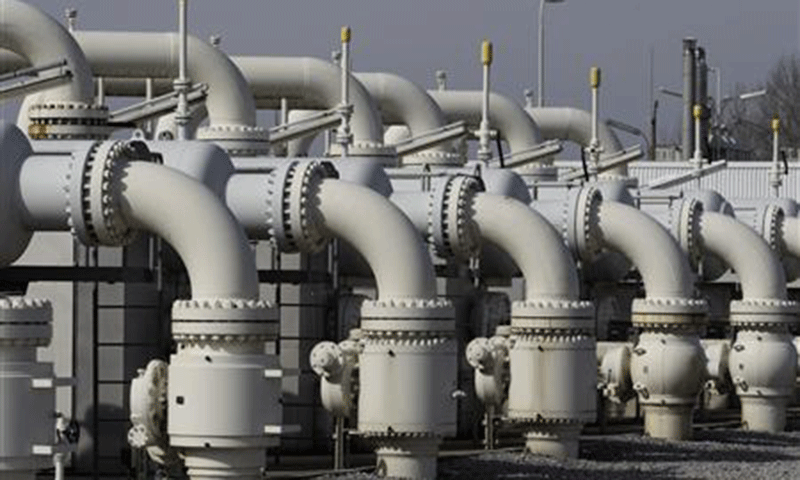ISLAMABAD: With system losses touching a massive 14.5 per cent, the Oil and Gas Regulatory Authority (Ogra) on Thursday notified up to 9pc reduction in the sale price of Regasified Liquefied Natural Gas (RLNG) for SSGCL and SNGPL for the current month, effective Feb 1, owing to lower international prices.
This is the second month in a row that RLNG prices have declined. The price had dropped by 8pc after increasing by 10pc in December 2023.
The RLNG sale price for Karachi-based Sui Southern Gas Company Ltd (SSGCL) has been cut at transmission stage by 9.02pc to $11.126 per million British thermal unit (mmBtu) from $12.229 mmBtu in January. The transmission stage rate for the company stood at $13.264 per unit in December. The sale price at the distribution stage for the company was decreased by 9.03pc to $12.96 per mmBtu against $14.245 in January and $15.45 per unit in December 2023.
Likewise, the RLNG’s sale price for Lahore-based Sui Northern Gas Pipelines Ltd has been reduced by 8.72pc $11.55 per mmBtu for February at transmission stage against $12.65 per mmBtu in January and $13.68 in December. The sale price at distribution stage for SNGPL was slashed by 8.75pc to $12.49 per unit for February against $13.67 in January and $14.8 in December.
The overall decrease in absolute terms for SSGC’s transmission price amounted to $1.1 per mmBtu and $1.29 per unit at distribution point. The reduction in RLNG price for SNGPL at transmission stood $1.1 per mmBtu and $1.2 per unit for distribution.
The major reason behind lower RLNG prices for SNGPL despite its larger distribution network and greater distance from ports when compared to SSGCL, according to Ogra’s tariff sheet, is the significantly higher system losses of the SSGCL.
Ogra said the SSGCL’s transmission and distribution system losses, commonly described as unaccounted-for-gas (UFG), stood at 14.48pc compared to 8.61pc of the SNGPL’s network.
This included SSGCL’s distribution loss at 14.36pc and transmission loss at 0.12pc while SNGPL’s distribution losses stood at 8.23pc besides 0.38pc of transmission losses.
Ironically, the RLNG distribution prices for SSGCL $12.96 per mmBtu and $12.49 per mmBtu for SNGPL are almost $3.36 and $3.13pc per mmBtu higher than Pakistan State Oil’s $9.36 per mmBtu average delivered price ex-ship (DES), respectively. This is mainly because of the fact that both the LNG importers — PSO and Pakistan LNG Ltd (PLL) — also charge profit margins on account of retainage and margins at the rate of 3.15pc and 3.1pc of DES price, respectively, on top of 8.6pc losses of SNGPL and14.5pc losses of SSGCL.
The basket RLNG price was based on a total of 10 cargos for February against 12 in February and 11 in December. These included eight cargos under the two LNG contracts with Qatar at an average of $9.36 per mmBtu — four cargos at $10.62 and four cargos at $8.1 per mmBtu. Two other cargos imported by PLL were delivered ex-ship at $9.64 and $10.77, with an average of $10.21.
Ogra said it had increased the prices in line with policy guidelines issued by the federal government through the Ministry of Energy.
Published in Dawn, February 16th, 2024
















































Dear visitor, the comments section is undergoing an overhaul and will return soon.